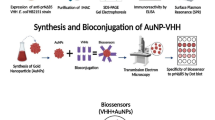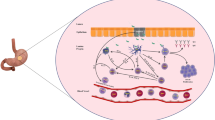Abstract
Background: The cagA (cytotoxin-associated gene A) protein is found in about 50% of Helicobacter pylori strains; its clinical relevance in gastroduodenal disease is uncertain.
Patients and Methods: The frequency of IgG antibodies to cagA was studied by using a commercial Western blot assay in sera of 189 patients with endoscopically and histologically confirmed gastroduodenal disease. In addition, 38 H. pylori strains isolated from biopsies were analyzed by immunofluorescence test (IFT) and PCR for detection of cagA protein and cagA gene sequences, respectively.
Results: 54.3–60.0% of all patients with gastrointestinal diseases (chronic gastritis, gastric or duodenal ulcer and chronic duodenitis) and 28.6% with a normal mucosa were found to be positive for anti-cagA IgG antibodies. There was no significant difference in anti-cagA IgG seroprevalence between the different clinical entities. CagA-positive (cagA+) H. pylori strains were detected in 44.7% and 50% of the 38 isolates by PCR and IFT, respectively. 22 of 23 patients infected with cagA+ strains had anti-cagA antibodies. Using PCR as a gold standard, the sensitivity and specificity of the cagA IgG Western blot were 100.0% and 35.0%, respectively; the sensitivity and specificity of the cagA IFT were 76.5% and 71.4%, respectively. The incidence of the cagA+ H. pylori strains detected either by PCR or IFT was significantly higher (p < 0.05 and p < 0.01, respectively) in patients with chronic duodenitis, gastric or duodenal ulcer compared to patients with chronic gastritis (66.7%, 80% and 30.4%, respectively).
Conclusion: In this study the cagA-specific serological status in H. pylori infections as diagnosed by IgG Western blot was of no predictive value for severity of disease. In contrast, the cagA status of H. pylori isolates, diagnosed by IFT or PCR, was a predictive marker for severe disease and, therefore, also of clinical relevance in the assessment of the virulence of the infecting strain.
Similar content being viewed by others
Author information
Authors and Affiliations
Additional information
Received: July 21, 2000 · Revision accepted: March 2, 2001
Rights and permissions
About this article
Cite this article
Krausse, R., Garten, L., Harder, T. et al. Clinical Relevance of CagA-specific Antibodies Related to CagA Status of Heliobacter pylori Isolates Using Immunofluorescence Test and PCR. Infection 29, 154–158 (2001). https://doi.org/10.1007/s15010-001-1102-1
Issue Date:
DOI: https://doi.org/10.1007/s15010-001-1102-1




